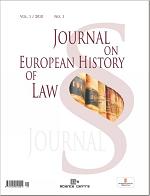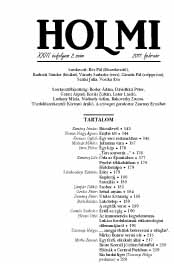
Břetislav and the beginnings of seniority in Bohemia
Der Fürst Břetislav und die Anfänge des Seniorats in Böhmen
Keywords: Přemyslids; Middle Ages; Bohemia; Seniority Rule; Břetislav I.; Cosmas.
Presented paper aims to answer the question how succession to the Bohemian throne during the Přemyslid era was reflected by narrative sources of the 12th century. The main interest lies in re-examining the famous bohemian Chronicle of Cosmas and its description of duke Břetislav I´s deathbed scene (1055) that is most often explained as a foundation of the seniority rule. In addition to that all relevant contemporary sources are taken into account, which can complete the evidence of Cosmas and thus deliver better insight to the problem of the medieval law of succession in Bohemia (Monk of Sazava, Canon of Vyšehrad, Gerlach of Milevsko etc.).
More...
